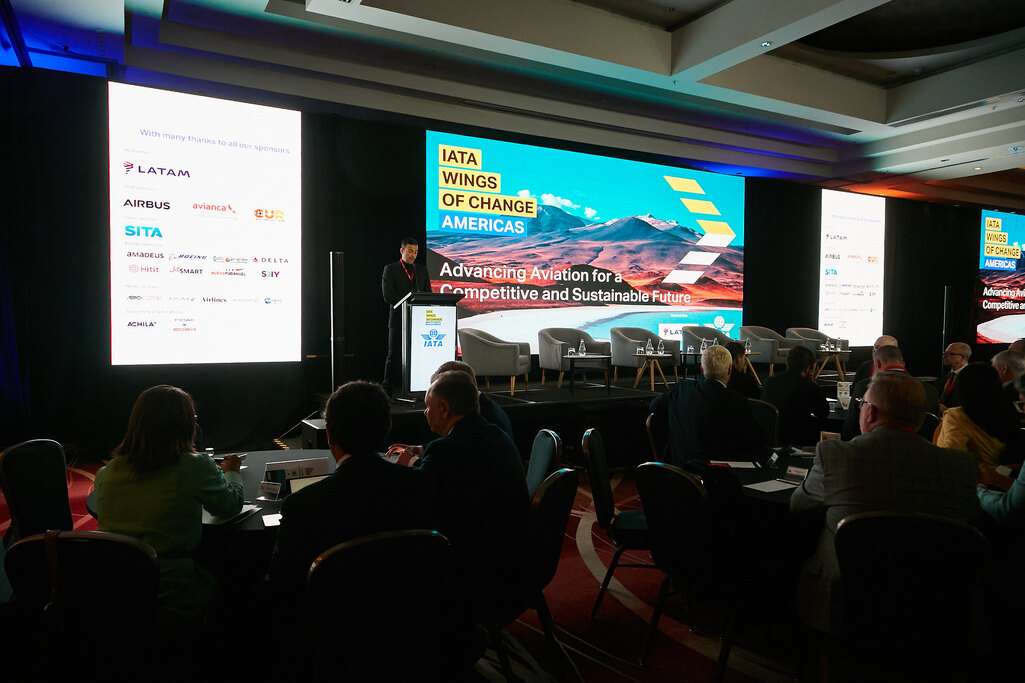The 14th edition of the Wings of Change Americas Conference (WOCA), hosted by the International Air Transport Association (IATA) was conducted last month.
The gathering brought together over 400 aviation industry representatives from across the Americas.
The two-day event took place in Santiago, Chile on April 10-11. It was held under the theme “Advancing Aviation for a Competitive and Sustainable Future,”
It served as a platform for meaningful discussions and collaboration to shape the region’s air transport future.
Santiago WOCA Conference 2024
Significantly, this year’s WOCA welcomed 16 tourism ministers from across the Americas, highlighting the vital link between tourism and aviation.
In his opening remarks, Peter Cerdá, IATA’s Regional Vice President for the Americas set the tone of the gathering. He emphasized that over 90% of foreign tourists visiting Latin America and the Caribbean arrive by air.
This underscores the importance of collaboration between governments and airlines to maximize the socio-economic benefits for the region.

Key Areas of Address
Cerdá further noted that air traffic has now rebounded to pre-pandemic levels. Connectivity within and beyond the Americas is now experiencing continued growth.
However, profitability remains a challenge for regional airlines. To address this, Cerdá called for collaborative efforts between governments and the industry on key topics:
- Reduced Taxes and Fees: Lowering the financial burden on airlines and passengers is crucial. A fair and consistent fee structure across the Americas is essential for sustainable growth.
- Harmonized Regulations: Aligning regulations with global best practices promotes consistency and efficiency. A level playing field needs to be established for airlines across borders, ensuring fair treatment compared to other transportation sectors.
- Adequate Infrastructure: Airport and air traffic management infrastructure must adapt to accommodate future growth. Passenger needs should be prioritized when investing in airport upgrades.
- Sustainability: Supportive policies for sustainable aviation fuel (SAF) are needed from governments. This must take place alongside private sector investment in SAF production. The collaboration must also extend to other innovations to achieve the industry’s net-zero CO2 emission goals.

Broader Initiatives Under Discussion
The Chilean authorities used this opportunity to launch their “Vuelo Limpio” program. This is a public-private partnership roadmap for developing SAF in the country, aiming for 50% SAF use by 2050.
A dedicated panel discussion also focused on attracting new talent to the aviation industry. It emphasized the importance of diversity and inclusion (D&I).

As part of this initiative, Chile’s Civil Aviation Authority (DGAC) signed on to IATA’s 25by2025 global program. This international program aims to enhance D&I within the aviation sector.
For the first time, WOCA offered three parallel tracks. These allowed participants to delve deeper into specific topics like Modern Airline Retailing, Regulatory Landscape, and Sustainability.
“The clear message from this conference is collaboration,” concluded Cerdá. “By working together, we can overcome challenges, drive innovation, and build a more resilient and sustainable aviation value chain for the Americas.”

Click the banner to subscribe to our weekly newsleter.

Click the photo to join our WhatsApp channel so then you can stay up to date with everything going on in the aviation industry!









